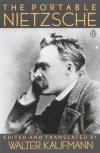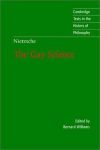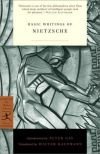
Το Τάδε έφη Ζαρατούστρας ή Έτσι μίλησε ο Ζαρατούστρα είναι έργο του Γερμανού φιλόσοφου Νίτσε που θεωρείται ως το σημαντικότερο έργο του. Εκδόθηκε σε τέσσερα μέρη, από το 1883 ως στο …

Beyond Good and Evil: Prelude to a Philosophy of the Future is a book by philosopher Friedrich Nietzsche, first published in 1886. It draws on and expands the ideas of his previous work, Thus Spoke Zarathustra, but with a more critical and polemical approach. In Beyond Good and Evil, Nietzsche accuses past …

On the Genealogy of Morality: A Polemic is a 1887 book by German philosopher Friedrich Nietzsche. It consists of a preface and three interrelated essays that expand and follow through on doctrines Nietzsche sketched out in Beyond Good and Evil. The three Abhandlungen trace episodes in the evolution of moral concepts …

The Antichrist is a book by the philosopher Friedrich Nietzsche, originally published in 1895. Although it was written in 1888, its controversial content made Franz Overbeck and Heinrich Köselitz delay its publication, along with Ecce Homo. The German title can be translated into English as both "The Anti-Christ" and …

The works of Friedrich Nietzsche have fascinated readers around the world ever since the publication of his first book more than a hundred years ago. As Walter Kaufmann, one of the world's leading authorities on Nietzsche, notes in his introduction, "Few writers in any age were so full of ideas," and few writers have …

The Gay Science is a book by Friedrich Nietzsche, first published in 1882 and followed by a second edition, which was published after the completion of Thus Spoke Zarathustra and Beyond Good and Evil, in 1887. This substantial expansion includes a fifth book and an appendix of songs. It was noted by Nietzsche to be …

The Birth of Tragedy from the Spirit of Music is an 1872 work of dramatic theory by the German philosopher Friedrich Nietzsche. It was reissued in 1886 as The Birth of Tragedy, Or: Hellenism and Pessimism. The later edition contained a prefatory essay, An Attempt at Self-Criticism, wherein Nietzsche commented on this …

Το Ecce homo. Wie man wird, was man ist είναι χειρόγραφο του Γερμανού φιλόσοφου Φρειδερίκου Νίτσε. Ο συγγραφέας έγραψε το χειρόγραφο από το 1888 μέχρι την κατάρρευση της υγείας του το 1889. Το χειρόγραφο δημοσιεύτηκε το …

Human, All Too Human: A Book for Free Spirits is a book by 19th century philosopher Friedrich Nietzsche, originally published in 1878. A second part, Assorted Opinions and Maxims, was published in 1879, and a third part, The Wanderer and his Shadow, followed in 1880. The book is Nietzsche's first in the aphoristic …

A collection of Walter Kauffman's masterful translations of five of Nietzsche's greatest works: The Birth of Tragedy, which forever changed assumptions about Greek culture and the nature of tragedy; Beyond Good and Evil, as comprehensive an overview of Nietzsche's thought as the delightfully aphoristic Thus Spake …

 English
English Español
Español Deutsch
Deutsch